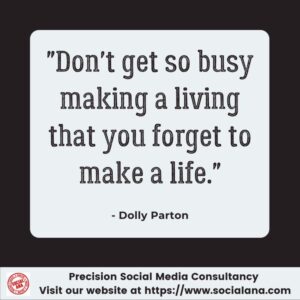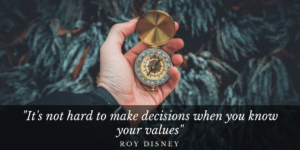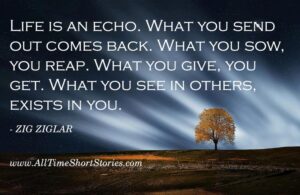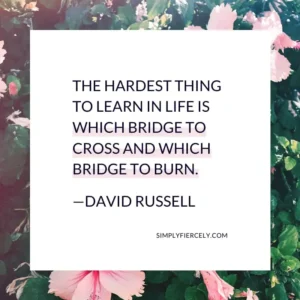“We make a living by what we get, but we make a life by what we give.”: – Unknown
Story: The Brick That Taught a Lesson (Source: Internet)
A successful young executive was driving his brand-new Jaguar down a neighbourhood street when he noticed a child darting between parked cars. Slowing down slightly, he suddenly heard a loud thud—a brick smashing into his car’s door. Furious, he slammed on the brakes and drove back to confront the culprit.
Jumping out of his car, he grabbed a young boy nearby and shouted, “What was that all about? What the heck did you do to my car? Why did you do it?” The boy, frightened yet polite, apologized, tears welling in his eyes. “I’m sorry, Mister,” he stammered. “I didn’t know what else to do. I had to throw the brick because no one else would stop.”
With tears streaming down his face, the boy pointed toward the sidewalk. “It’s my brother. He rolled off the curb and fell out of his wheelchair. He’s hurt, and I can’t lift him. Would you please help me?”
 The young executive moved beyond words and swallowed the lump in his throat. Without hesitation, he walked over, lifted the injured boy back into his wheelchair, and helped clean his cuts and bruises. When everything seemed okay, the young man returned to his car, shaken but silent. As he drove away, he chose not to repair the dent in his car door. Instead, he kept it as a reminder of the lesson: “Do not go through life so fast that someone has to throw a brick at you to get your attention.”
The young executive moved beyond words and swallowed the lump in his throat. Without hesitation, he walked over, lifted the injured boy back into his wheelchair, and helped clean his cuts and bruises. When everything seemed okay, the young man returned to his car, shaken but silent. As he drove away, he chose not to repair the dent in his car door. Instead, he kept it as a reminder of the lesson: “Do not go through life so fast that someone has to throw a brick at you to get your attention.”
The Moral: Slow down and be more mindful in life. Sometimes, we are so caught up in our own pace that we fail to notice others’ needs or struggles. Life may throw unexpected ‘bricks’ at us to remind us of what truly matters—compassion, empathy, and helping those in need.
How to Live and Make a Living
In ancient times, children were sent to a rishi in the forest for their education. This practice aimed to instil intellectual knowledge and virtues such as discipline, humility, empathy, resilience, and a deep connection with nature and spirituality. The objective was to equip children not only with material knowledge but also with the wisdom to live fulfilling lives. Upon completing their education, these individuals often achieved a harmonious balance between earning a livelihood and leading a meaningful life.
In contrast, modern times have brought unparalleled access to quality education, career opportunities, and material success. On the surface, it appears that we have everything we could desire. Yet, many of us feel an inner void—a persistent sense that something essential is missing. We often feel insecure,  overthink situations, and lack trust in ourselves.
overthink situations, and lack trust in ourselves.
For example, consider preparing for a work presentation. Instead of focusing on preparation, you might overanalyze every detail, worrying about forgetting key points or handling tough questions. Despite your expertise, you second-guess yourself, doubting your ability to deliver effectively. This cycle of insecurity, overthinking, and self-doubt leaves you stressed and diminishes your confidence.
The Modern Struggle
Despite achieving material success, why do so many of us fail to enjoy life fully? Why do we constantly compare ourselves to others, fear a vacuum in our lives, or feel the need to prove our worth? In our pursuit of position, power, and money, we often compromise values such as empathy, teamwork, and humility—qualities once held in the highest regard.
Our relentless chase for success comes at a cost. While we may gain wealth, fame, and power, we also experience rising levels of insecurity, stress-related illnesses, and loneliness. Hospitals are filled with patients suffering from psychosomatic disorders, and relationships with family, friends, and colleagues continue to deteriorate.
 There’s nothing inherently wrong with pursuing success—building careers, owning luxurious homes, or travelling to exotic destinations. However, the methods we use, the speed at which we move, and the sacrifices we make along the way are concerning.
There’s nothing inherently wrong with pursuing success—building careers, owning luxurious homes, or travelling to exotic destinations. However, the methods we use, the speed at which we move, and the sacrifices we make along the way are concerning.
A Path to Balance
We face two choices in how we live our lives. The first is to continue compromising our values, living in the fast lane, and fearing the future. The second is to pause, reflect, and realign with our core values, proceeding with empathy, teamwork, and humility.
 Choosing the second path may slow our progress. We might earn less or watch others overtake us. However, in the long run, we’ll gain something far more valuable: excellent mental and physical health, strong relationships, and genuine contentment. By embracing this approach, we can progress in life while remaining fulfilled with what we have.
Choosing the second path may slow our progress. We might earn less or watch others overtake us. However, in the long run, we’ll gain something far more valuable: excellent mental and physical health, strong relationships, and genuine contentment. By embracing this approach, we can progress in life while remaining fulfilled with what we have.
The Lakshman Rekha of Life
It’s crucial to pause, introspect, and assess where we are heading. In the Ramayana, Sita Mata’s crossing of the Lakshman Rekha—an ethical boundary—allowed Ravana to abduct her. Similarly, we must identify our own Lakshman Rekha. How often do we cross it, and what can we do to respect this sacred line in our lives?
 By balancing ancient wisdom with modern aspirations, we can create a purposeful and pleasurable life. A mindful approach to living and earning will ensure that we not only succeed but also find true fulfilment. Let us slow down, reflect, and ensure that we live a life that’s as meaningful as it is successful.
By balancing ancient wisdom with modern aspirations, we can create a purposeful and pleasurable life. A mindful approach to living and earning will ensure that we not only succeed but also find true fulfilment. Let us slow down, reflect, and ensure that we live a life that’s as meaningful as it is successful.

Leave a Reply
You must be logged in to post a comment.